Новини компанії
E-Malt news
Brazil: Dispute between Heineken and Ambev gains new momentum
Canada & Saudi Arabia: Canada resumes barley exports to Saudi Arabia
USA, NJ: Sons of Barley Beer Co. grand opening celebration on tap for December 6
Vietnam: Carlsberg Vietnam outlines new steps towards net-zero emissions
Наш солод
Наш хміль
New Hops
Наші дріжджі
Наші спеції
Наш цукор
Наші кришки
-
 Кришки для кег 69 мм, Червоні 102 Grundey G-тип (850/Коробка)
Додати до кошика
Кришки для кег 69 мм, Червоні 102 Grundey G-тип (850/Коробка)
Додати до кошика
-
 Crown Caps 26mm TFS-PVC Free, Purple col. 2277 (10000/Коробка)
Додати до кошика
Crown Caps 26mm TFS-PVC Free, Purple col. 2277 (10000/Коробка)
Додати до кошика
-
 Кришки 26mm TFS-PVC Free, Reflex Blue col. 2203 (10000/Коробка)
Додати до кошика
Кришки 26mm TFS-PVC Free, Reflex Blue col. 2203 (10000/Коробка)
Додати до кошика
-
 Кришки для кег 64мм, Orange 43 Sankey S-тип (ЄС) (1000/Коробка)
Додати до кошика
Кришки для кег 64мм, Orange 43 Sankey S-тип (ЄС) (1000/Коробка)
Додати до кошика
-
 Кришки для кег 69 мм, Сині 141 Grundey G-тип (850/Коробка)
Додати до кошика
Кришки для кег 69 мм, Сині 141 Grundey G-тип (850/Коробка)
Додати до кошика
Рецепти пива
Сертифікати
Suggestion
 Belgium: InBev’s Second Global Citizenship Report reveals the company’s strong commitment to recycling and reduced energy use
Belgium: InBev’s Second Global Citizenship Report reveals the company’s strong commitment to recycling and reduced energy use
InBev, the world’s leading brewer by volume has underlined its commitment to corporate citizenship with the release on November 16 of its second Global Citizenship Report. The 2006 Global Citizenship Report is a balanced account of InBev's social, economic and environmental performance. Some highlights include:
1. Reduced energy use per hectoliter of product by over 12 per cent since 2003
2. A reduction in greenhouse gases per hectoliter by 14 per cent over the same period
3. Launch of the Belgian network of the United Nations Global Compact in June 2006
“We made a commitment to keep stakeholders informed of our progress on our citizenship journey” said Carlos Brito, CEO of InBev. “Since our last report we have delivered what we believe are meaningful actions to show that citizenship is more than just a reporting exercise.”
Environmental performance
Energy Efficiency:
InBev has reduced the amount of energy required to produce a hectoliter of product by 12.4% since 2003. In addition, InBev increasingly uses fuel from renewable resources, including biogas and biomass, with agricultural byproducts playing a growing role. For example, coconut husks are used as a carbon dioxide neutral energy source in four Brazilian breweries, resulting in a reduction of greenhouse gas emissions by over 85,000 tons each year. This is not only in line with the Kyoto agreement but also generates production efficiencies.
Waste Management and Recycling:
InBev is optimizing its production process so that fewer materials are required, and that the residual value of byproducts and materials are increased. Over 95% of total waste and byproducts are reused or recycled; left-over grain and yeast from the brewing process are used in cattle feed for example.
In addition, InBev has fulfilled its 2005 commitment to move to a single environment and safety reporting system based on global best practices.
Improving water efficiency:
Water is one of the most important environmental resources of the 21st century and it is central to InBev’s world-renowned products.
Since 2001, overall water efficiency has increased by over 11% across the board, so that in 2005 it required 5.2 liters to produce 1 liter of beverage, compared to 5.8 liters in 2003.
“InBev has improved its environmental performance year after year by rapidly disseminating best practices throughout the organization, and by focusing on disciplined execution” said Geerd Jan Timmers, Director Global Environment and Safety, InBev.
Responsible product use
InBev actively promotes the responsible use of beer, for instance our Labatt operations in Canada have worked for many years with numerous partners to help communicate their message “Know Where to Draw the Line.” Labatt’s most recent program, “Make a Plan,” is an advertising campaign aimed at educating adults on the importance of responsible use. Its focus is on helping adults plan ahead to have fun safely.
In addition, InBev has also implemented a global Commercial Communications code, setting out clear principles and guidelines ensuring that our marketing and advertising does not portray irresponsible use.
InBev is a registered organizational stakeholder of the Global Reporting Initiative’s (GRI) Guidelines for Sustainability Reporting. This Report follows the guidelines as closely as possible and includes a GRI index. The next Global Citizenship Report will follow the newly updated G3 version of the GRI guidelines launched in October 2006.
Other partners also shape InBev’s approach to citizenship including: Harvard University and the Kennedy School of Government’s Corporate Social Responsibility Initiative; the International Business Leaders Forum (IBLF), an international education charity; and the United Nations Global Compact (UNGC). InBev launched the Belgian chapter of the UN Global Compact in June 2006.
InBev is a publicly traded company based in Leuven, Belgium. The company's origins date back to 1366, and today it is the leading global brewer by volume. InBev's strategy is to strengthen its local platforms by building significant positions in the world's major beer markets through organic growth, world-class efficiency, targeted external growth, and by putting consumers first. InBev has a portfolio of more than 200 brands, including Stella Artois®, Brahma®, Beck's®, Leffe® and Skol® - the third-largest selling beer brand in the world. InBev employs some 85,000 people, running operations in over 30 countries across the Americas, Europe and Asia Pacific. In 2005, InBev realized €11.7 billion of revenue.
Назад








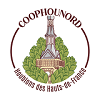
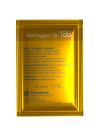









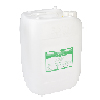
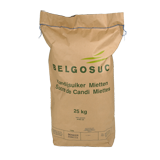

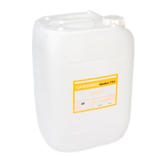

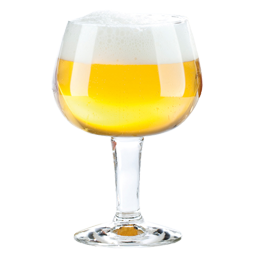
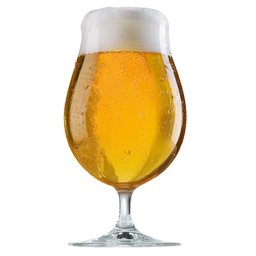
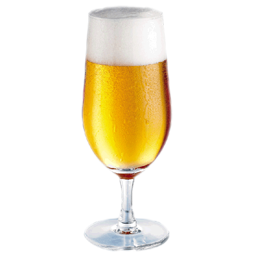
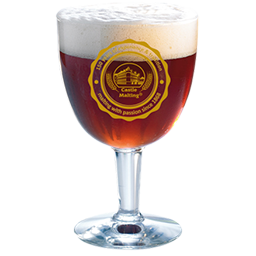
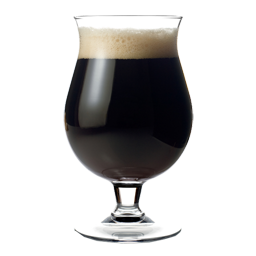
 La Malterie du Chateau | FCA Malt Certificate (English) (2024-2027)
La Malterie du Chateau | FCA Malt Certificate (English) (2024-2027)
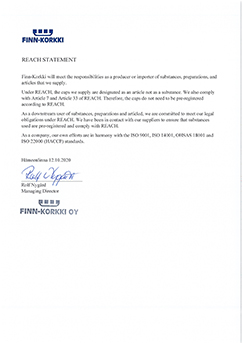 Crown Caps Finnkorkki REACH Statement
Crown Caps Finnkorkki REACH Statement
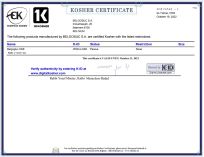 Malt Kosher Certificate July 2024-June 2025
Malt Kosher Certificate July 2024-June 2025
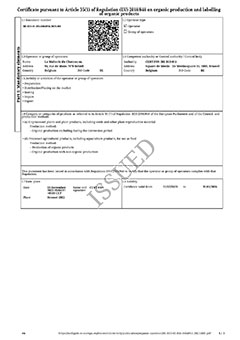 Organic Certificate ENG: Malt, Hops, Spices and Sugar - Jul 2025-Mar 2028
Organic Certificate ENG: Malt, Hops, Spices and Sugar - Jul 2025-Mar 2028
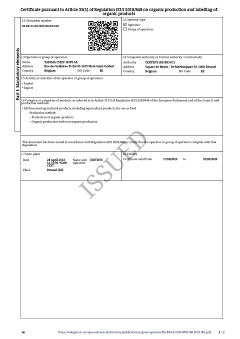 Hops Yakima Chief, Certificate Bio 2023-2026
Hops Yakima Chief, Certificate Bio 2023-2026






